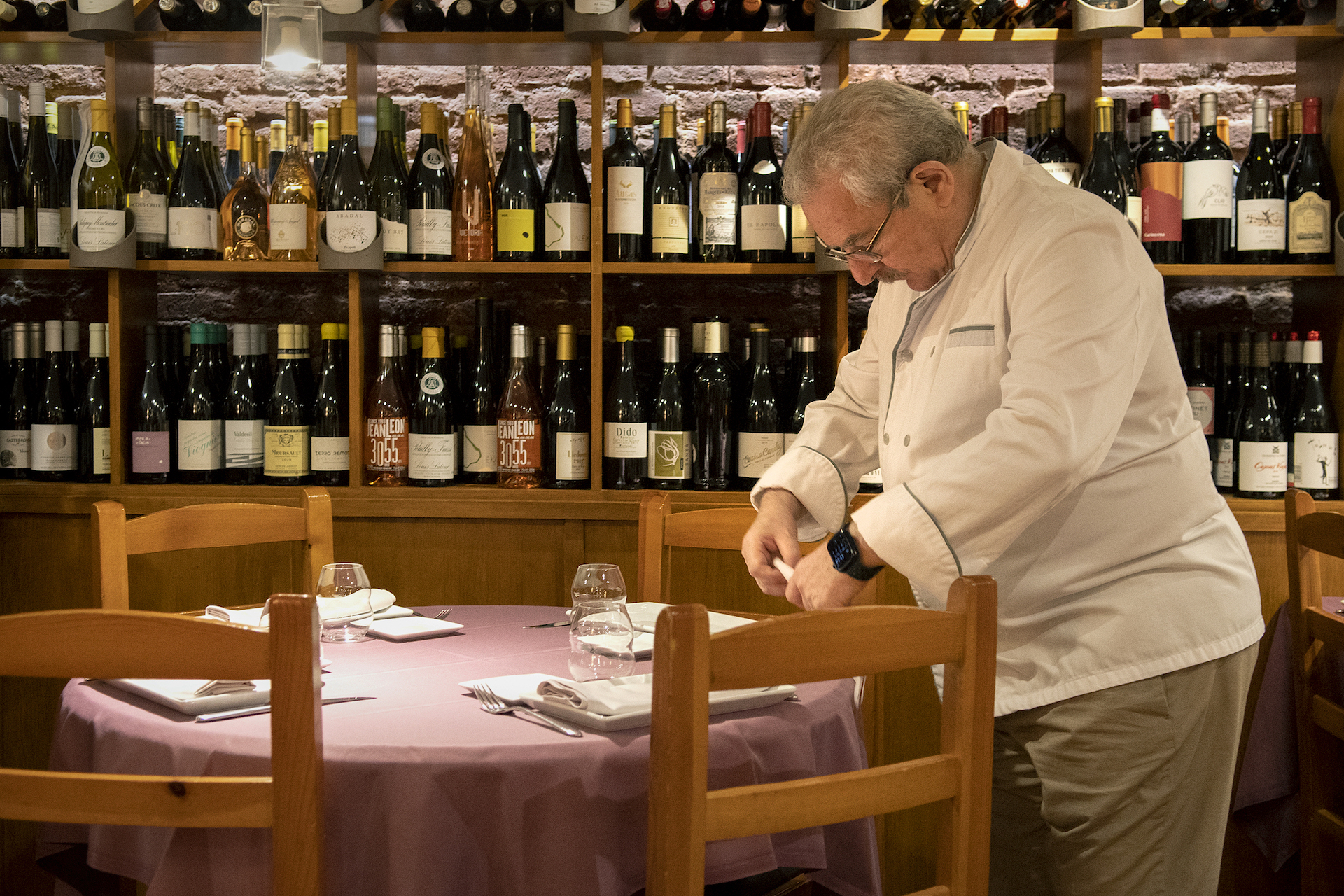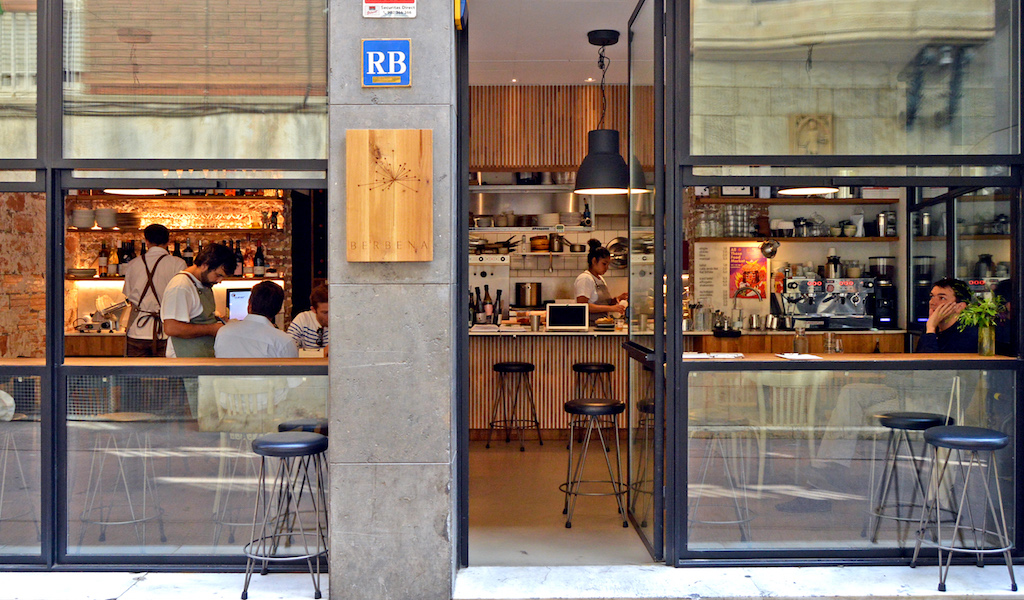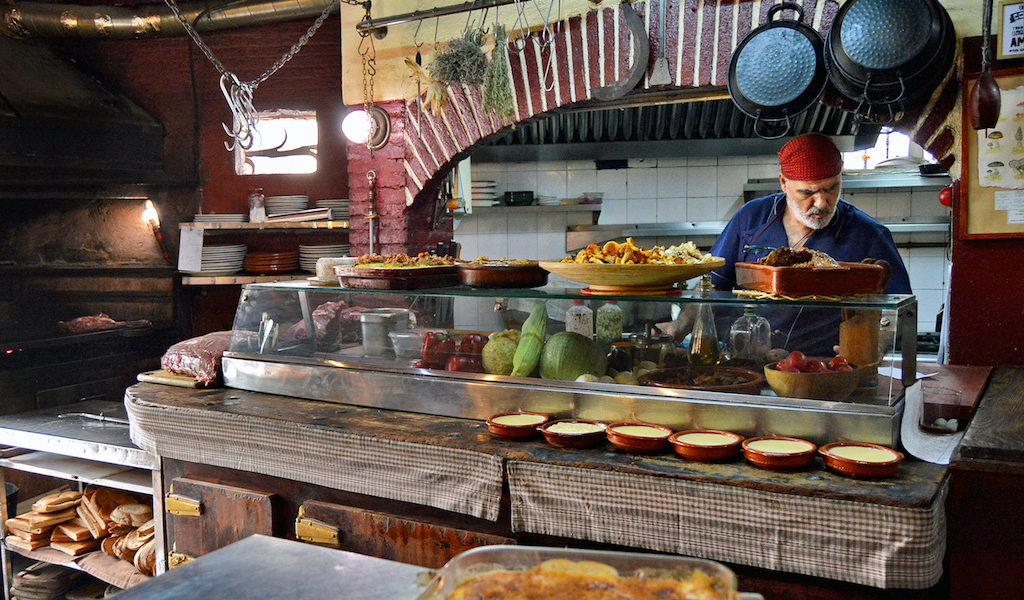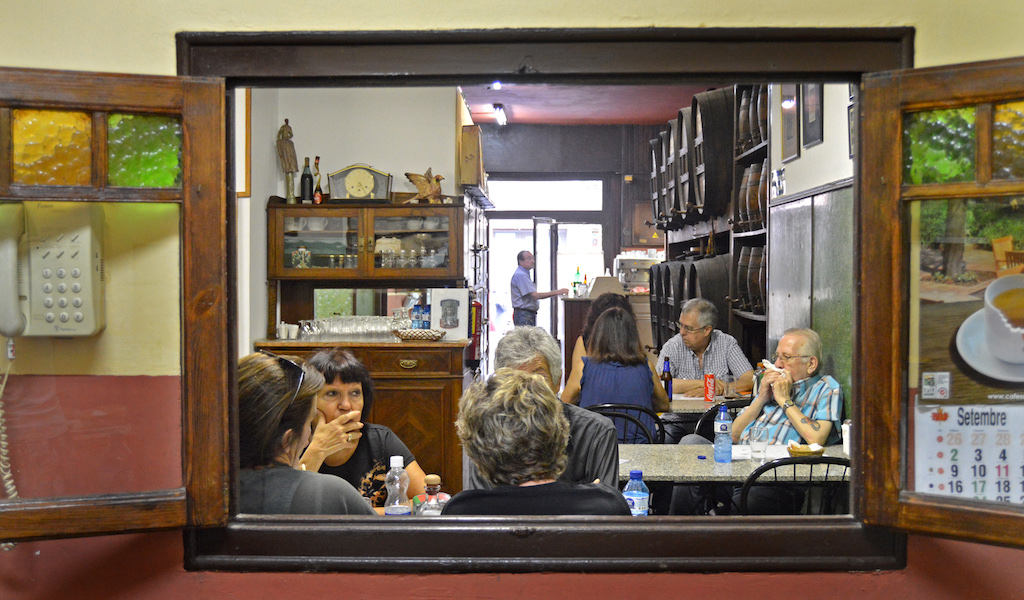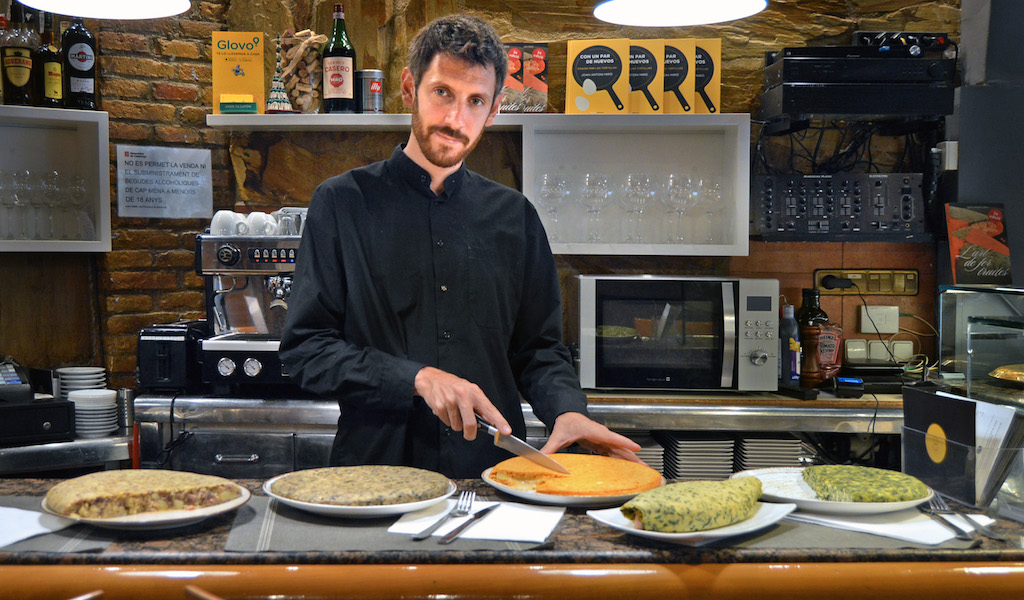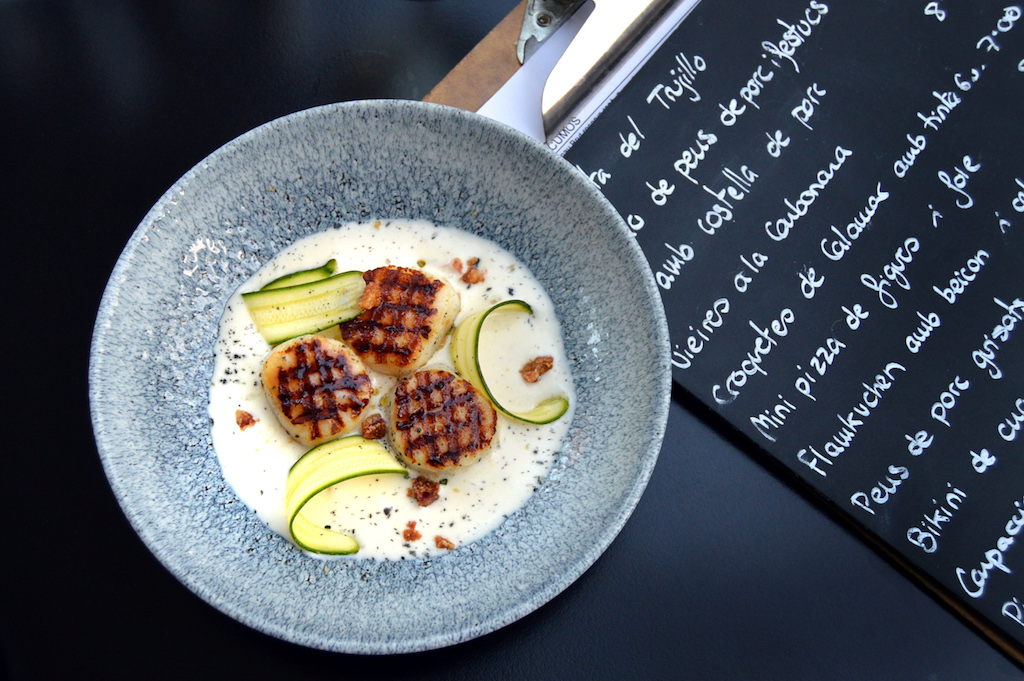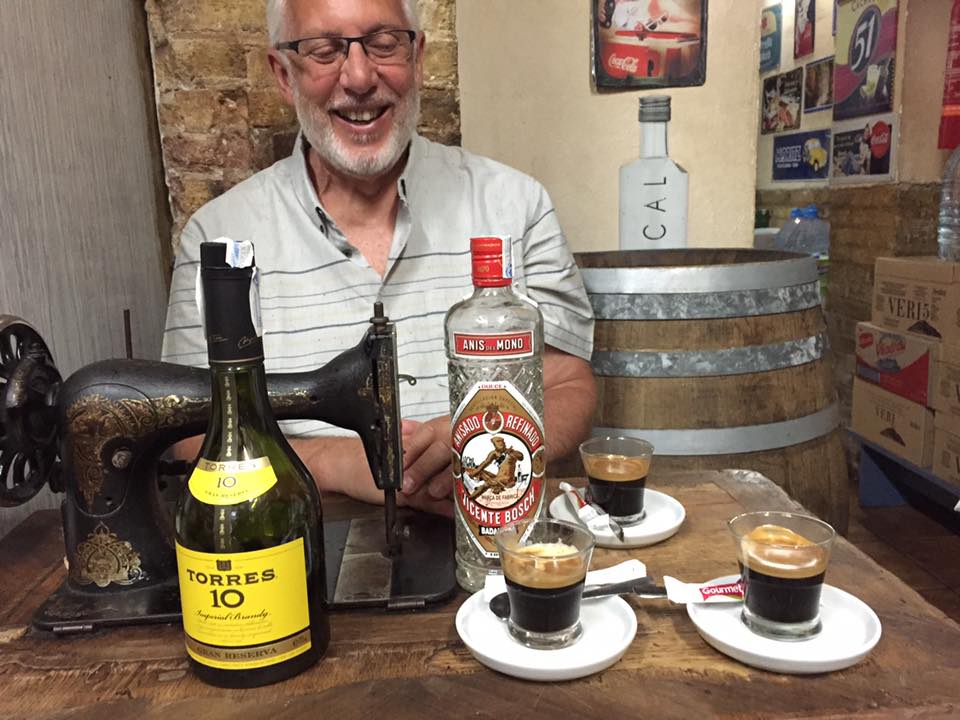We can't find the internet
Attempting to reconnect
Something went wrong!
Hang in there while we get back on track
Search results for "Paula Mourenza"
Barcelona
Sense Pressa: Stress-Free Dining
n 2005, José Luís Díaz was thinking about retiring after working for many years in great local restaurants. He wanted to leave behind the stress of big kitchens, but still to cook the recipes that he loved with a different rhythm and with more time and care. And so he opened Sense Pressa – an antidote to the pressures and stresses of modern life. Sense Pressa (literally “Unhurried”) is a cozy, modest eatery. The narrow entry adjoins a bar that is flanked by more than 300 wine bottles and leads into a wider room appointed with round tables. The ambiance walks the line between elegant and homey, serene and lively. Each night, Díaz and his team cook around 25 covers (by reservation only) in a single, leisurely seating.
Read moreBarcelona
Berbena: Back to Basics
At first glance, Berbena, a restaurant in Gràcia, resembles a small, pretty tree with dazzling foliage – it offers a sophisticated and complex dining experience. But the restaurant’s delicate attributes, those pretty leaves, wouldn’t be possible without a carefully tended trunk and roots. In short, the basics matter, something that its creator, chef Carles Pérez de Rozas, decided after years spent in high-end kitchens. Carles had a culinary education par excellence: After studying at the prestigious Hofmann School, a culinary institution in Barcelona, he worked at several Michelin-starred restaurants in Catalonia, such as Drolma, Saüc, and Carmen Ruscalleda’s iconic Sant Pau. A job in the restaurant at the Hotel de Ville de Crissier brought him to Switzerland; he then spent a short and intense period in France with the great chef Michel Bras. In Japan, he trained alongside Seiji Yamamoto, in his Tokyo restaurant Nihonryori RyuGin, adding more notches of refined knowledge to his belt.
Read moreBarcelona
La Parra: Urban Refuge
Dust, sweat, rain, and severe sun – these were only a few of the many discomforts that travelers of yore suffered as they made the long journey in horse-drawn carriages from their home provinces to Barcelona. In those days – around a century or two ago – the city was protected by fortified walls; it was outside of those walls, in an area known as Hostafrancs, part of the Santa Maria de Sants village (today the neighborhood of Sants), that many travelers and merchants found a convenient refuge – a place to recover from the journey. Taverna La Parra was one of the several inns that dotted the area.
Read moreBarcelona
Bar Code: Protecting Barcelona’s Classic Bodegas
Wooden wine barrels with taps, shabby old furniture, noisy antiquated fridges, soda siphons from the 1960s… these are the building blocks of Barcelona’s classic bodegas. Formerly shops that sold bulk wine, liquor and ice, these bodegas survived the Spanish Civil War, social conflicts, food shortages, financial crises and, of course, modernity, with their essence intact, even if they morphed into bars or restaurants along the way. The most important element of a neighborhood bodega, however, is neither readily visible nor easily captured: it’s the place of importance these spots occupy in the lives and hearts of the local residents. They are the scene of innumerable childhood memories and infinite moments shared with other locals from the block, making them a dependable point of reference in time and space.
Read moreBarcelona
Les Truites: Eggs Mark the Spot
If anything in recent history has bonded Spanish hearts, it was neither politics, language, flags nor even TV. It was the tortilla de patatas, the iconic potato omelet. In every house, bar and restaurant, the tortilla de patates is always treated with intimacy and respect, like some sort of communal great-great-grandmother. And in every Spanish city, you will find a list of the best kitchens offering this specialty. For Barcelona, one neighborhood temple devoted to the omelet is Les Truites, a small family restaurant in Sant Gervasi run by Joan Antoni Miró and his son Marc.
Read moreBarcelona
TocaTeca: Gastronomic Unicorn
A former village annexed to Barcelona in 1897, the city’s Sant Andreu district was a center of industrial development throughout the 20th century, becoming home to a large population of factory workers. Today, it is a quiet residential area that feels caught between its Catalan village roots and industrial past, with buildings being renovated and repurposed, including factories transformed into creative arts complexes and parks, and a former canódromo (dog-racing track) that is now an “innovation center.” It’s not a part of town that’s considered a dining destination, but Sant Andreu’s El Congrés neighborhood now has its own gastronomic unicorn: TocaTeca, which opened in 2012. A unique establishment of its kind in the area – for now, at least – the restaurant is a gourmet endeavor sustained by a couple of professional chefs, Maria Cots and Guillem Carulla.
Read more